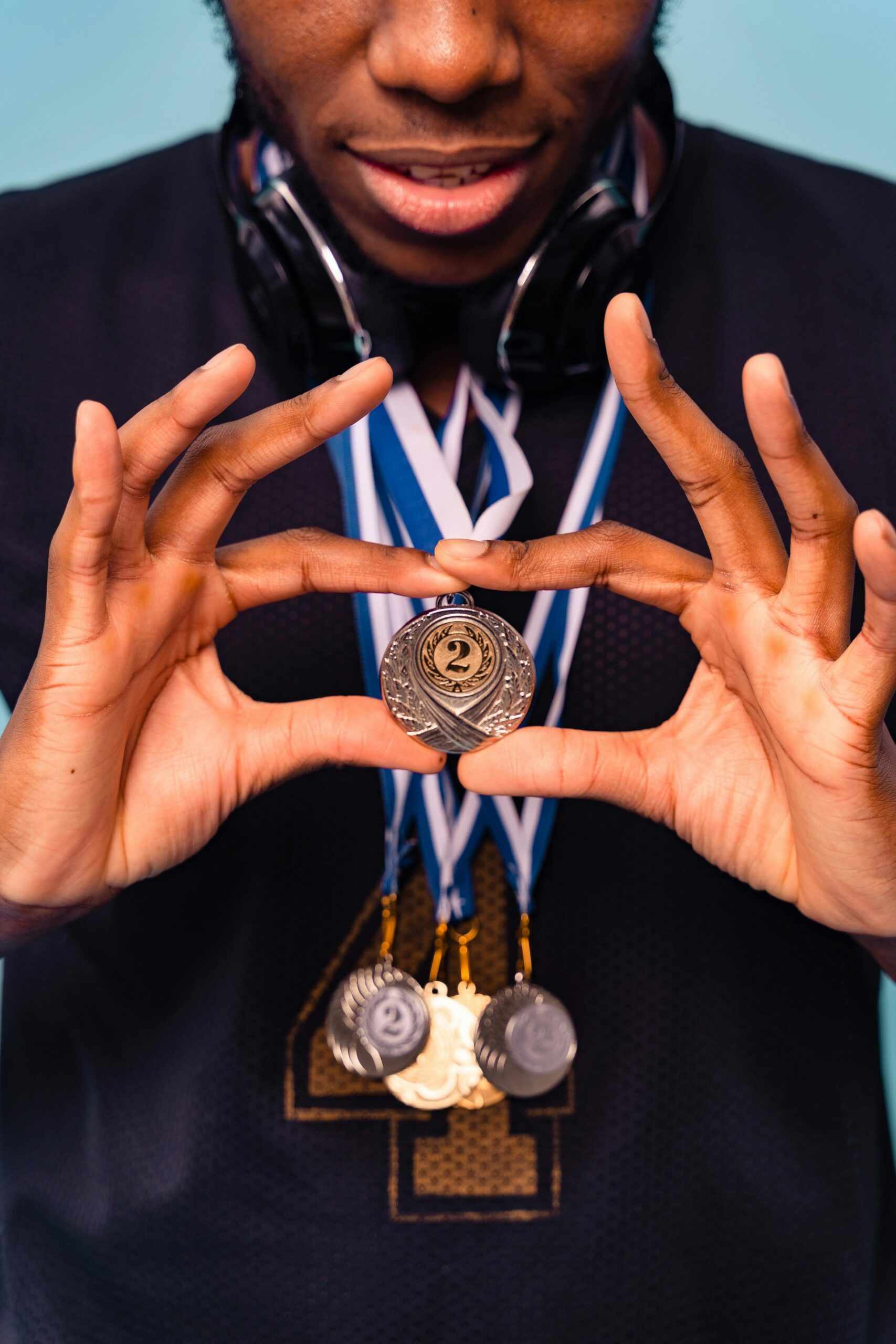Are you ready to unlock the secrets to winning wrestling medals? In the fierce world of competitive wrestling, achieving glory is not just about strength; it’s about strategy, technique, and a burning desire to excel. Many aspiring wrestlers often wonder, what does it take to stand atop the podium? Understanding the nuances of training, nutrition, and mental preparation can be the difference between a gold medal and going home empty-handed. Have you ever considered how champions mentally prepare for their matches? Or what specific techniques can enhance your performance on the mat? In this comprehensive guide, we’ll delve into the essential elements that contribute to winning wrestling medals, from effective practice routines to the importance of mindset. Whether you’re a novice eager to learn or an experienced athlete looking to refine your skills, this article is designed to provide you with valuable insights. Join us as we explore the journey to victory, uncovering tips and strategies that can lead you to your own wrestling glory! Don’t miss out—your path to wrestling medals starts here!
Top 10 Strategies to Maximize Your Chances of Winning Wrestling Medals in 2024
Wrestling is not just a sport; it’s a lifestyle where dedication and strategy play a crucial role in achieving success. As the 2024 wrestling season approaches, athletes and coaches alike are looking for ways to maximize their chances of winning those coveted wrestling medals. Whether you’re a seasoned competitor or a newcomer, understanding effective strategies can help unlock the secrets to winning glory on the mat. Here are the top 10 strategies that could improve your performance and medal chances in 2024.
1. Set Clear Goals
One of the first steps in any successful wrestling campaign is setting clear and achievable goals. Instead of vague aspirations like “I want to win,” consider specific objectives such as “I want to place in the top three at the state championship.” This helps you focus your training on what matters most.
2. Develop a Strong Training Regimen
Training is key, and a well-structured regimen can make all the difference. Include various aspects like strength training, technique refinement, and endurance workouts.
- Strength Training: Focus on compound movements like squats and deadlifts.
- Technique Drills: Spend time on specific moves and counter-techniques.
- Cardio Workouts: Incorporate running, swimming, or cycling for endurance.
3. Nutrition and Hydration
What you eat plays a major role in how you perform. Proper nutrition helps maintain energy levels and recovery times. Pay attention to:
- Proteins: Chicken, fish, and legumes for muscle repair.
- Carbohydrates: Whole grains and fruits for energy.
- Hydration: Stay hydrated with water and electrolyte drinks, especially during intense training sessions.
4. Mental Preparation
Wrestling isn’t just physical; it’s also mental. Developing a strong mindset can significantly influence performance. Techniques such as visualization and positive affirmations can help you stay focused and confident.
5. Watch and Learn
Studying top wrestlers can provide valuable insights. Watch matches, analyze techniques, and learn from their strategies. Platforms like YouTube have countless instructional videos and match highlights.
6. Sparring with Different Partners
Sparring with different partners can expose you to various styles and techniques. This helps you adapt to different opponents and refine your skills. Regularly match up with wrestlers who have different strengths and weaknesses.
7. Track Your Progress
Keeping a training journal can help you monitor your progress and identify areas that need improvement. Note down your workouts, techniques practiced, and feelings after each session. This can help you adjust your training as needed.
8. Focus on Recovery
Overtraining can lead to injuries and burnout. Prioritize recovery with:
- Rest Days: Schedule regular rest days to let your body heal.
- Stretching: Incorporate stretching routines after workouts to maintain flexibility.
- Sleep: Aim for 7-9 hours of quality sleep each night to support recovery.
9. Build a Support System
Having a strong support system can make a significant difference. Surround yourself with coaches, friends, and family who encourage you. They can provide motivation and guidance, especially during tough times.
10. Participate in Tournaments
Competing in tournaments is crucial for gaining experience. Start with local events and gradually move to higher tiers. Each match, win or lose, teaches you valuable lessons that can prepare you for bigger competitions.
Practical Example of a Training Week
Here’s an example of how a week of training might look for a wrestler aiming for medals:
- Monday: Strength training + Technique drills (1 hour)
- Tuesday: Sparring + Cardio workout (1.5 hours)
- Wednesday: Rest day + Stretching and yoga (30 minutes)
- Thursday: Sparring with different partners (1 hour)
- Friday: Strength training + Endurance run (1.5 hours)
- Saturday: Watch matches and analyze techniques (2 hours)
- Sunday: Competition or practice match (as available)
Historical Context of Wrestling Medals
Wrestling has been a part of the Olympic Games since 1896, showcasing the sport’s rich heritage. Over the years, many wrestlers have become legends, inspiring future generations to strive for excellence. For instance, the likes of Dan Gable and Cael Sanderson have set standards that many aspire to reach.
By employing these strategies, you can significantly boost your chances of securing wrestling medals in 2024. Remember, the path to victory is a combination of hard work, smart training, and a positive mindset. Embrace the journey, keep pushing your limits, and who knows? You may just find yourself standing on that podium, medal gleaming under the spotlight.
The Psychology of Champions: How Mindset Influences Wrestling Medal Success
In the world of wrestling, where physical strength meets mental fortitude, the psychology of champions plays a critical role. It’s not just about the muscles and technique; mindset can make or break a wrestler’s journey to glory. Wrestlers who achieve medal success often have a unique mental approach that sets them apart. Understanding this psychology is key to unlocking the secrets behind winning wrestling medals and achieving greatness in the sport.
The Mindset of a Champion
Wrestling is a sport that demands both physical and mental prowess. A positive mindset can help a wrestler overcome challenges, adapt to adversities, and stay focused under pressure. Here’s some key aspects of a winning mindset:
- Resilience: Champions often display an incredible ability to bounce back from setbacks. Whether it’s losing a match or facing an injury, they maintain a determined attitude.
- Focus: Top wrestlers know how to concentrate on their goals and ignore distractions. This focus helps them during intense matches.
- Confidence: Believing in oneself is essential. Successful wrestlers often visualize their victories and train their minds to expect success.
Historical Context of Wrestling Medals
The quest for wrestling medals has a long and storied history. Wrestling is one of the oldest sports, dating back to ancient Greece. The Olympics featured wrestling as early as 776 BC, making it a traditional cornerstone of athletic competition. Over the years, wrestling evolved, with different styles emerging, including freestyle and Greco-Roman.
Here are some notable milestones in the history of wrestling medals:
- 1904: First Olympic wrestling events held in St. Louis, USA.
- 1924: Introduction of Greco-Roman wrestling at the Paris Olympics.
- 1987: The first Women’s World Wrestling Championships were held in Finland, paving the way for female wrestlers to compete for medals.
Mental Training Techniques for Wrestlers
To achieve medal success, many wrestlers incorporate mental training techniques into their routines. These methods enhance their psychological strength and prepare them for competitive environments. Some popular techniques include:
- Visualization: Athletes picture themselves performing successfully in matches. This mental rehearsal boosts confidence and reduces anxiety.
- Mindfulness: Practices such as meditation can improve focus and mental clarity. Wrestlers learn to stay present, avoiding distractions during competitions.
- Goal Setting: Establishing clear, achievable goals is crucial. Wrestlers often set both short-term and long-term objectives to track their progress.
Comparing Mindsets: Champions vs. Non-Champions
While many athletes strive for success, the difference between champions and non-champions often lies in their mindset. Here’s a quick comparison:
| Trait | Champions | Non-Champions |
|---|---|---|
| Resilience | Bounces back from losses | May dwell on failures |
| Focus | Maintains concentration under pressure | Easily distracted |
| Confidence | Exudes self-belief | Often doubts abilities |
| Adaptability | Adjusts strategies mid-match | Sticks to one plan |
The Role of Coaches and Support Systems
Coaches and support systems also play a vital role in shaping a wrestler’s mindset. A good coach not only trains athletes physically but also nurtures their mental development. Here’s how they do it:
- Providing Feedback: Constructive criticism helps wrestlers improve. Coaches who encourage self-reflection foster a growth mindset.
- Creating Positive Environments: Supportive teams can build confidence. A positive atmosphere allows wrestlers to thrive.
- Mentorship: Experienced coaches often share their own experiences, helping young wrestlers navigate challenges.
Practical Examples of Mindset in Action
Several famous wrestlers have exemplified the power of mindset in their careers. For instance:
- Kurt Angle: An Olympic gold medalist, Angle faced numerous challenges, including injuries. His resilience and mental toughness helped him achieve success.
- Jordan Burroughs: Known for his determination, Burroughs has repeatedly emphasized the importance of believing in oneself and setting high goals.
- Helen Maroulis: First American woman to win an Olympic gold in wrestling, she overcame adversity and challenges with a strong mental approach.
Psychology of champions is a fascinating aspect of wrestling that deserves more attention. Wrestlers who aspire to win medals should consider the mindset factor, alongside their physical training. Embracing a winning mentality can be the difference between just competing and achieving glory on the mat. The journey towards wrestling medals is not only about technique but also about mastering the mind.
From Mat to Medals: The Journey of Olympic Wrestling Champions Unveiled
Wrestling has a long and storied history, often seen as one of the most pure forms of athletic competition. From the ancient Olympic Games in Greece to modern-day tournaments, wrestling has evolved yet retained its core essence. The journey from mat to medals for Olympic wrestling champions is not just about physical prowess; it’s a tale of sacrifice, dedication, and overcoming adversity. Let’s explore how these athletes unlock the secrets to winning wrestling medals and the glory that comes with them.
The Roots of Olympic Wrestling
Wrestling in the Olympics dates back to the 708 BC, making it one of the oldest sports in the world. It was originally included in the ancient Olympic Games as a way to showcase strength and skill. Over the centuries, it has morphed into various styles, with Greco-Roman and freestyle being the most recognized in the current Olympic format.
- Historical Styles of Wrestling:
- Greco-Roman: Only allows holds above the waist, emphasizing upper body strength.
- Freestyle: Allows the use of legs for holds and attacks, making it more dynamic.
Many countries around the world have their own wrestling traditions, which have influenced the styles seen in the Olympics today.
The Path to the Podium
For aspiring wrestlers, the road to Olympic glory is often filled with challenges. Many start in local clubs, grappling with peers and learning the basics. Training is grueling, involving early mornings, intense workouts, and strict diets. The mental aspect is equally demanding, with athletes needing to strategize and adapt their techniques to outsmart their opponents.
Key Steps in Training:
- Physical Conditioning: Strength, endurance, and flexibility training are critical.
- Technical Skills: Mastering various holds and moves is essential.
- Mental Preparation: Visualization and psychological resilience can make a big difference.
- Competition Experience: Regular participation in tournaments helps build confidence.
The Medals: What They Represent
Winning an Olympic medal is not just about the shiny metal; it symbolizes years of hard work, sacrifice, and personal growth. The medals awarded at the Olympics come in three types: gold, silver, and bronze. Each medal has its own significance:
- Gold Medal: Awarded to the champion, representing the pinnacle of achievement.
- Silver Medal: Given to the second place, a testament to near excellence.
- Bronze Medal: Recognizes third place, often earned through a fierce battle.
Famous Olympic Wrestling Champions
Throughout history, there have been numerous wrestling legends who have left their mark on the sport. Their stories often inspire upcoming wrestlers. Here are a few notable names:
- Alexander Karelin: Known as “The Russian Bear,” he won three gold medals and is considered one of the greatest wrestlers of all time.
- Kurt Angle: An American wrestler who achieved Olympic glory in 1996, famously winning gold with a broken neck!
- Saori Yoshida: A Japanese wrestler who has won three Olympic golds and is celebrated for her technical prowess.
The Secrets to Winning in Wrestling
While talent plays a role in achieving success in wrestling, there are several strategies that champions often employ. Here are some tips that can help wrestlers unlock their potential:
- Focus on Technique Over Strength: Many champions emphasize that mastering techniques is more important than sheer physical power.
- Adaptability: Being able to change tactics mid-match can give a wrestler the upper hand against opponents.
- Mental Fortitude: Developing a strong mindset is essential for dealing with the pressures of competition.
The Role of Coaches and Support Systems
The journey from mat to medals often isn’t a solo effort. Coaches play a crucial role in shaping athletes’ careers. They provide not only technical guidance, but also emotional support. Family and friends often also contribute, creating a network of encouragement.
Wrestling as a Lifelong Pursuit
For many athletes, wrestling does not end with the Olympic Games. Post-competition, some turn to coaching, helping the next generation of wrestlers. Others might remain involved in wrestling through commentary, writing, or advocacy for the sport.
Wrestling medals are more than just awards; they are powerful symbols of dedication, resilience, and the human spirit. The journey to winning them is filled with ups and downs, victories and losses, but ultimately leads to personal growth and glory. Whether on the mat or in life, the lessons learned through wrestling can inspire not just athletes, but everyone who seeks to achieve their dreams.
Essential Gear for Aspiring Wrestlers: What You Need to Win Medals in 2024
Wrestling is a sport that demands not just skill and determination, but also the right gear. As aspiring wrestlers set their sights on winning medals in 2024, they need to understand what essential equipment is necessary for their journey. The quest for wrestling medals is not just about physical prowess, it’s about being prepared and having the right tools at your disposal. So, let’s break down the must-have gear for wrestlers, and how it can help unlock the secrets to winning glory on the mat.
Essential Gear for Wrestlers
When stepping into the wrestling arena, having the right gear can make a significant difference. Below is a list of essential items that every wrestler should consider:
-
Wrestling Shoes: These are designed to provide grip and support, helping wrestlers maintain balance and agility. Look for shoes that are lightweight yet durable. Brands like ASICS and Nike are popular choices.
-
Headgear: Protecting your ears is crucial in wrestling. Headgear helps prevent injuries and allows wrestlers to focus on their technique. Make sure it fits snugly but comfortably.
-
Singlets: This is the uniform of choice for wrestlers. They are made from stretchy material that allows for freedom of movement. Choose a singlet that fits well and meets your team’s requirements.
-
Mouthguard: Safety should always come first. A mouthguard protects your teeth and jaw from potential injuries during intense matches.
-
Knee Pads: Protect your knees from scrapes and impact when taking to the mat. They can also provide extra support for your joints.
-
Water Bottle: Staying hydrated is key. Choose a durable water bottle that’s easy to carry and refill.
-
Towel: A quick-drying towel is useful for wiping off sweat during practice and matches.
Training Gear
In addition to competition gear, aspiring wrestlers also need to invest in training equipment. Here are some items that can enhance their training sessions:
-
Resistance Bands: Great for strength training and improving flexibility. They’re easy to use and can be taken anywhere.
-
Foam Roller: Perfect for muscle recovery, foam rollers help relieve soreness and improve flexibility. Using one regularly can keep injuries at bay.
-
Agility Ladder: This is fantastic for improving footwork and speed. It’s also a fun tool that can make workouts more engaging.
Physical Conditioning
Wrestlers need to be in peak physical condition, and conditioning gear can help. Here are a few items to consider:
-
Weights: Free weights or kettlebells can help build strength. A balanced strength training program can enhance your wrestling performance.
-
Jump Rope: A simple yet effective tool for cardio training. Jumping rope improves coordination and stamina.
-
Resistance Training Equipment: Items like medicine balls or weighted vests can elevate your training regimen.
Understanding Wrestling Medals
Wrestling medals are more than just shiny tokens; they represent hard work, dedication, and the culmination of countless hours of practice. The journey to winning medals can be intense, and understanding what it takes is essential. Here are some factors that contribute to winning:
-
Technique Mastery: Skill development is crucial. Wrestlers must constantly refine their techniques, learning from coaches and competitors.
-
Mental Toughness: Wrestling is as much a mental battle as it is a physical one. Staying focused, managing stress, and maintaining confidence can make or break a match.
-
Physical Conditioning: As mentioned earlier, being in top shape is non-negotiable. Wrestlers need to have endurance, strength, and flexibility.
-
Strategy: Understanding your opponent’s strengths and weaknesses can give you the upper hand. Wrestlers should study their opponents and adapt their strategies accordingly.
The History of Wrestling Medals
Wrestling has a rich history, with medals being awarded since ancient times. The modern Olympic Games reintroduced wrestling in 1896 and it has been a staple ever since. The design of medals has evolved, but the prestige associated with winning them remains unchanged.
-
Olympic Medals: Gold, silver, and bronze medals are awarded based on performance. The thrill of standing on the podium is something every wrestler strives for.
-
National Championships: Various governing bodies award medals at national levels. These competitions are crucial for gaining experience and recognition.
As aspiring wrestlers gear up for a competitive year in 2024, understanding what gear is essential and how to win medals can provide a solid foundation for success. With the right equipment, training, and mindset, the dream of standing atop the podium can become a reality. Embrace the journey, stay focused, and let your passion for wrestling lead the way to glory.
Wrestling Medals Decoded: Understanding the Different Types and Their Significance
Wrestling Medals Decoded: Understanding the Different Types and Their Significance
Wrestling is a sport where strength, strategy, and skill collide, and the medals awarded to winners are symbols of glory and achievement. But did you ever wondered what these medals mean, or how they vary across competitions? In this article, we’ll dive into the world of wrestling medals, unlocking secrets behind their designs, significance, and the history that brings them to life.
The Different Types of Wrestling Medals
In the realm of wrestling, medals come in various types, each with its own meaning and level of achievement. Here is a breakdown of the most common types of wrestling medals:
- Gold Medals: Represents the ultimate victory, awarded to the top performer in a tournament or championship.
- Silver Medals: Given to the runner-up, it symbolizes excellence but also the closest realization of winning.
- Bronze Medals: This medal is awarded to competitors who finish in third place; it signifies hard work and determination.
- Participation Medals: Often given in youth or amateur competitions, these medals recognize effort and encourage continued participation.
The Significance of Each Medal
Each medal in wrestling carries a weight of significance that goes beyond its physical form. Here’s a deeper look into what each type represents:
- Gold Medals: Not just a shiny symbol, a gold medal often represents years of dedication and sacrifice. They are the pinnacle of achievement in wrestling, often associated with Olympic victories or world championships.
- Silver Medals: While they may seem lesser than gold, silver medals play an important role. They represent the hard-fought battles and the close calls that competitors face. It reflects resilience and the ability to perform at an elite level.
- Bronze Medals: These medals are reminders that even being third in the world is an incredible feat. They encourage athletes to strive for greatness while acknowledging their current achievements.
- Participation Medals: More than just a consolation prize, these medals are intended to inspire young wrestlers to continue in the sport. They emphasize the journey rather than just the outcome.
Historical Context of Wrestling Medals
Wrestling medals have a rich history, tracing back to ancient times. Here is a brief timeline of how they evolved:
- Ancient Greece: In ancient Olympic Games, victors were crowned with olive wreaths rather than medals.
- 19th Century: The modern concept of medals started to take shape as wrestling became formalized as a competitive sport.
- 20th Century: The introduction of medals in international competitions, including the Olympics, became a standard. Gold, silver, and bronze medals were introduced, solidifying their significance.
Comparing Wrestling Medals Across Different Competitions
Different wrestling organizations and competitions have their own rules and traditions regarding medals. For instance:
- Olympics: Gold, silver, and bronze medals are awarded. The Olympic gold medal is unique, often made from silver and coated in gold.
- World Championships: Similar to the Olympics, they also follow the gold, silver, bronze format. However, they might have different designs based on the hosting country.
- College Wrestling: NCAA championships award medals but may also include trophies, reflecting the student-athletes’ accomplishments at the collegiate level.
Practical Examples of Notable Wrestling Medals
Famous wrestlers often have memorable moments associated with their medals. Here are a few notable examples:
- Karelin’s Gold: Alexander Karelin, a legend in Greco-Roman wrestling, won three gold medals in the Olympics and is known for his incredible dominance in the sport.
- Jordan Burroughs: An Olympic and World champion, Burroughs’s gold medal win in 2012 is remembered for his electrifying style and determination.
- Helen Maroulis: She made history as the first American woman to win a gold medal in wrestling at the Olympics in 2016, showcasing the growing opportunities for women in wrestling.
Wrestling medals are more than just pieces of metal; they are symbols of dedication, resilience, and the spirit of competition. Each type has its own story to tell, connecting athletes to history and to one another across generations. Understanding these medals enrich our appreciation for the sport and the incredible journeys of those who strive for greatness. Whether you’re a fan, a participant, or simply curious, the world of wrestling medals continues to inspire and motivate.
Conclusion
In conclusion, wrestling medals serve as a powerful symbol of achievement, dedication, and the fierce spirit of competition. Throughout this article, we explored the various types of medals awarded at different levels, from local tournaments to prestigious international events, highlighting the craftsmanship and significance behind each design. We also discussed the emotional impact these awards have on athletes, reflecting their hard work and resilience. Additionally, the importance of proper care and display of wrestling medals was emphasized, ensuring that these tokens of success remain cherished for years to come. As you continue your wrestling journey, whether as an athlete, coach, or supporter, remember that each medal is not just a piece of metal but a testament to the countless hours of training and perseverance. Celebrate your achievements and those of your peers by sharing your stories and proudly displaying your medals. Let’s inspire the next generation of wrestlers to strive for greatness!














